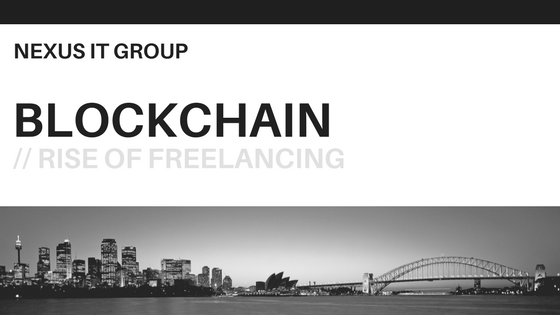Bitcoin has created a frenzy in both the tech and financial industries because of its astronomical price rise in recent years. But part of the excitement over this new form of digital currency known as cryptocurrency can be attributed to its underlying technology, known as blockchain. In the future, blockchain may be the key to clients paying freelancers without the help of a bank.
How Blockchain Works
The blockchain can be visualized as a chronological chain of blocks filled with information. Blocks are actually records with timestamps. A block can contain several gigabytes of data. Blocks can be seen by other members of the network, so that they can be verified. The blockchain acts as a permanent ledger for record keeping, such as for transactions.
The technology is designed so that previous records can only be modified with the majority approval of network members. Transactions from one digital wallet to another are secure and don’t require a bank. Cryptocurrency can be converted to cash through exchanges.
A smart contract is a blockchain feature that executes a contract automatically when certain predetermined events occur. This feature can be very useful to companies that pay freelancers and could potentially eliminate middlemen platforms such as Upwork or Uber. When a client approves of a freelancer’s work, the freelancer will automatically get paid.
Rise of Freelancing
Freelancing is growing in popularity due to the independent nature of the work and flexible scheduling. Companies such as Upwork match clients with freelancers to generate online jobs. A recent Upwork study revealed that about 36% of Americans and nearly half of millennials currently do freelance work. The growth of freelancing has been encapsulated by the emerging buzz phrase “gig economy.”
Upwork forecasts that by 2027 most U.S. workers will be involved with freelancing. Bloomberg Law reports that blockchain will help speed up the shift toward freelancing based on an interview with Hila Solutions HR Consultant Baskaran Ambalavanan. Blockchain technology has only been around since 2009. So it’s still in its infancy, but economic experts already see it as helping businesses in multiple ways, including resolving financial or assignment disputes.
Conclusion
As the gig economy picks up steam, it will likely become even more widespread with the advent of blockchain technology for transactions. The technology makes it possible for project managers to pay freelancers directly. Blockchain transactions are quicker, safer and cheaper than traditional methods of transferring money.Bitcoin has created a frenzy in both the tech and financial industries because of its astronomical price rise in recent years. But part of the excitement over this new form of digital currency known as cryptocurrency can be attributed to its underlying technology, known as blockchain. In the future, blockchain may be the key to clients paying freelancers without the help of a bank.
